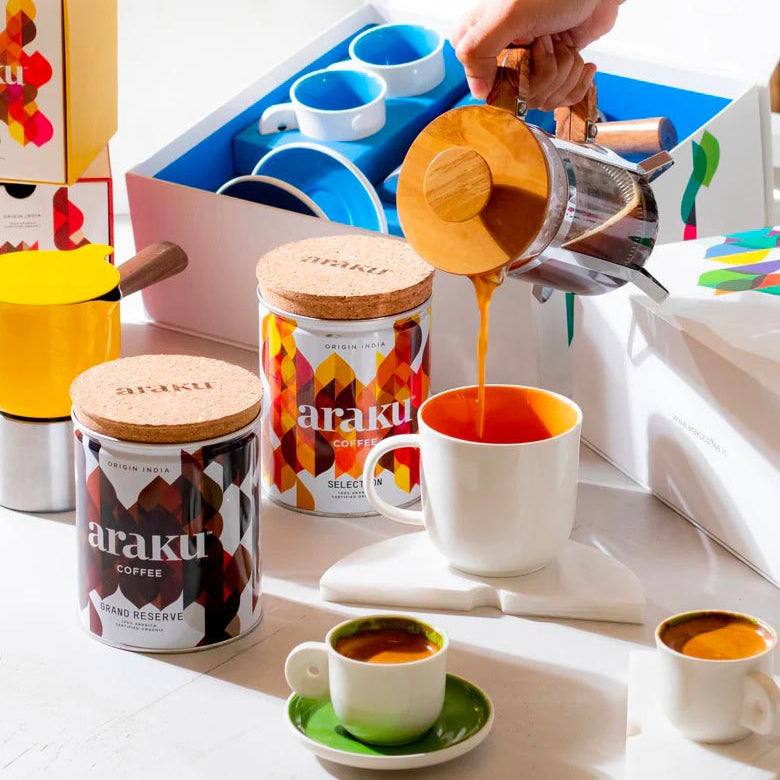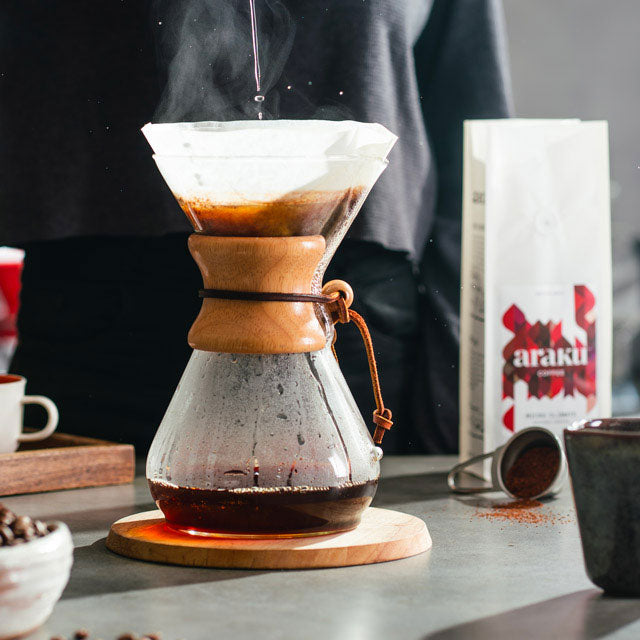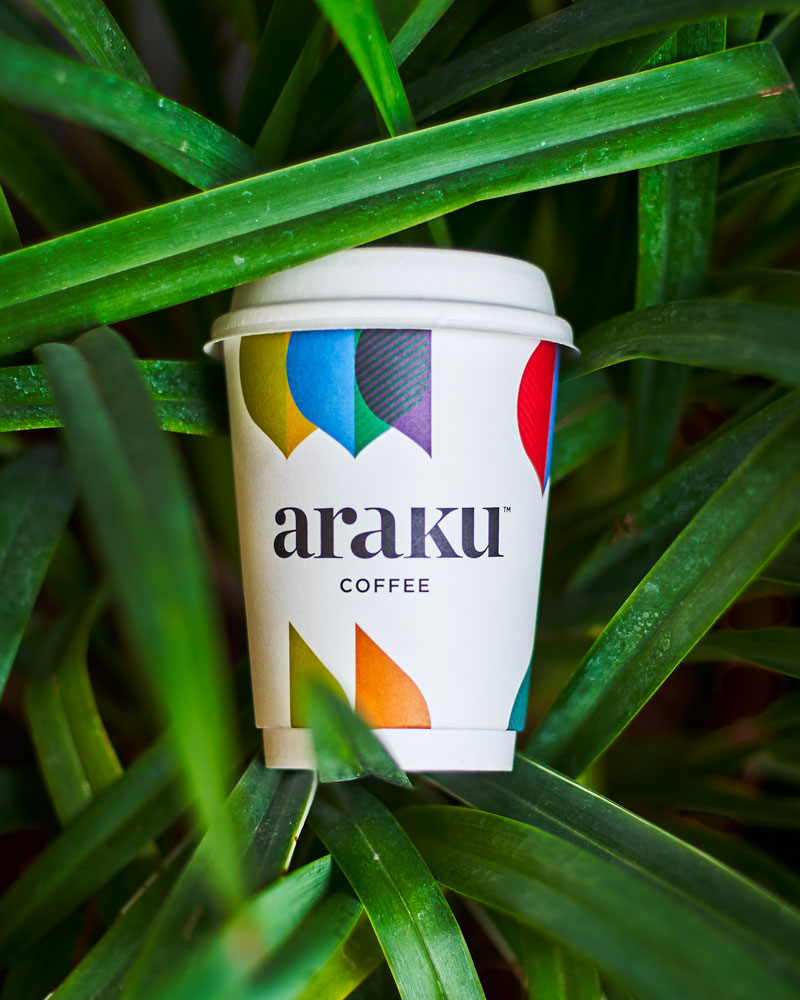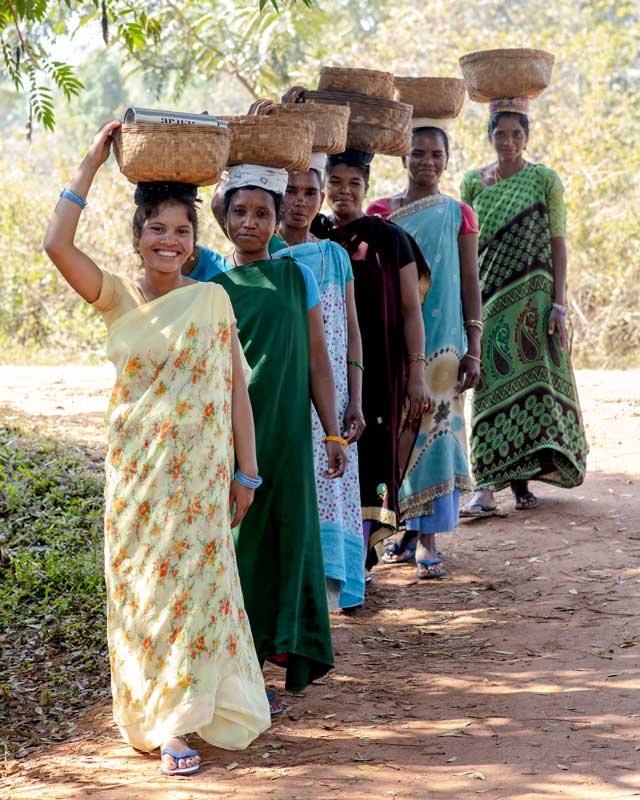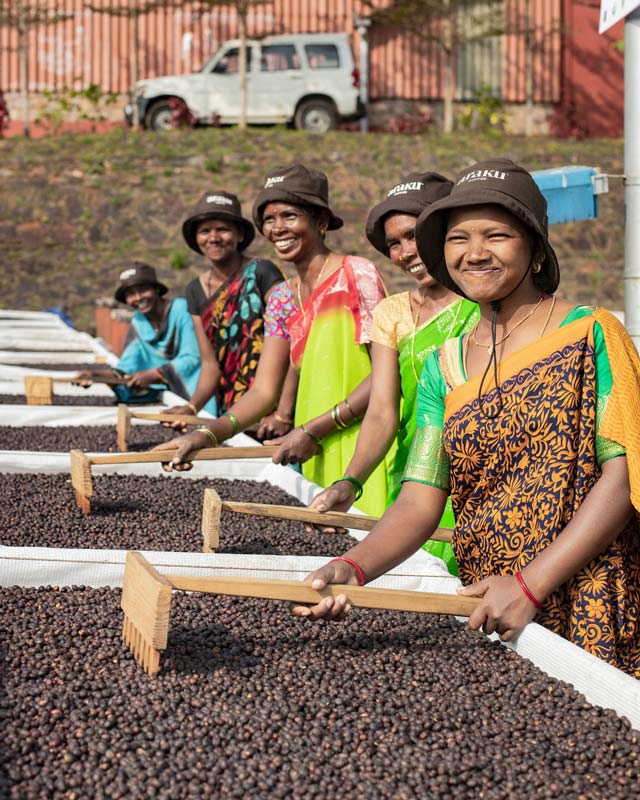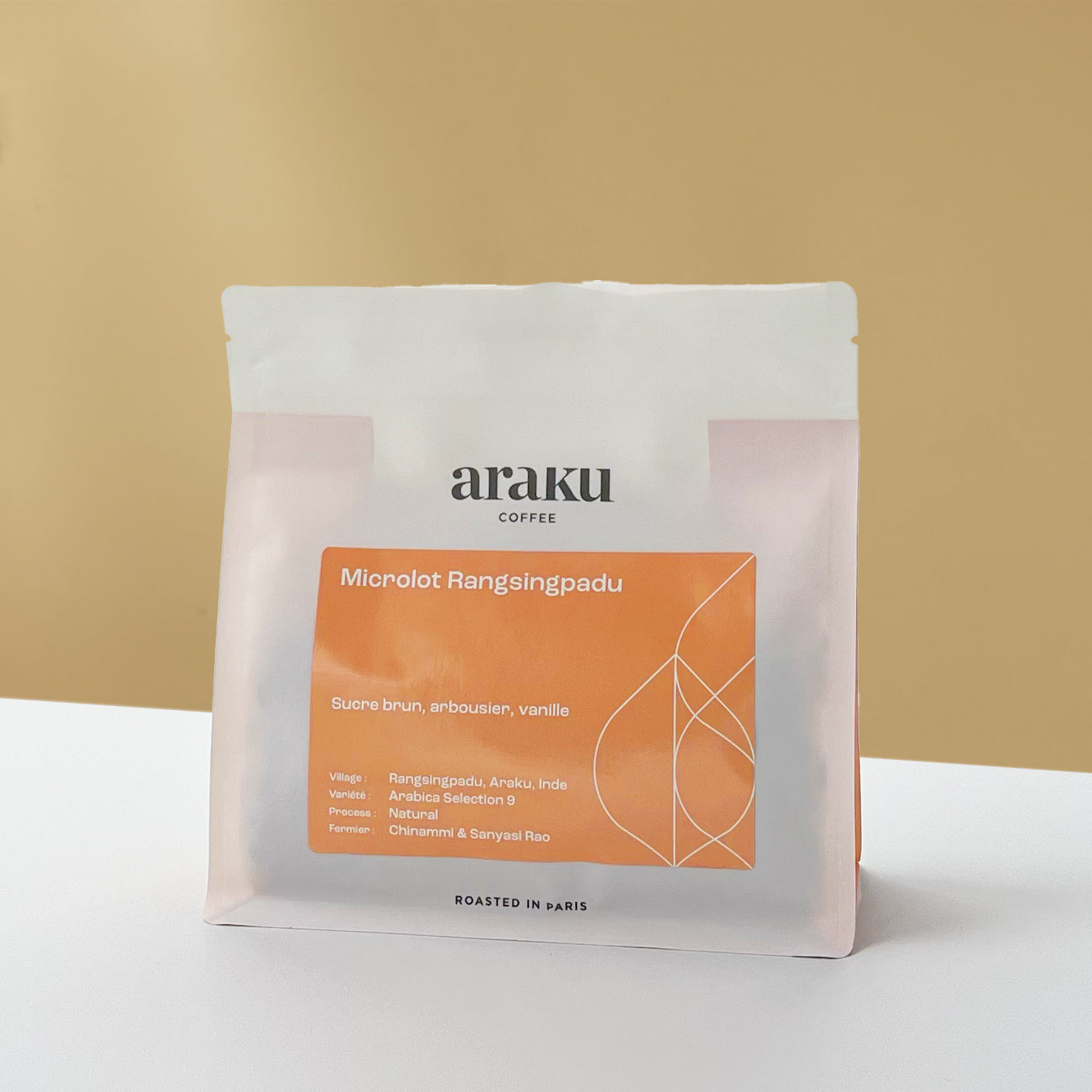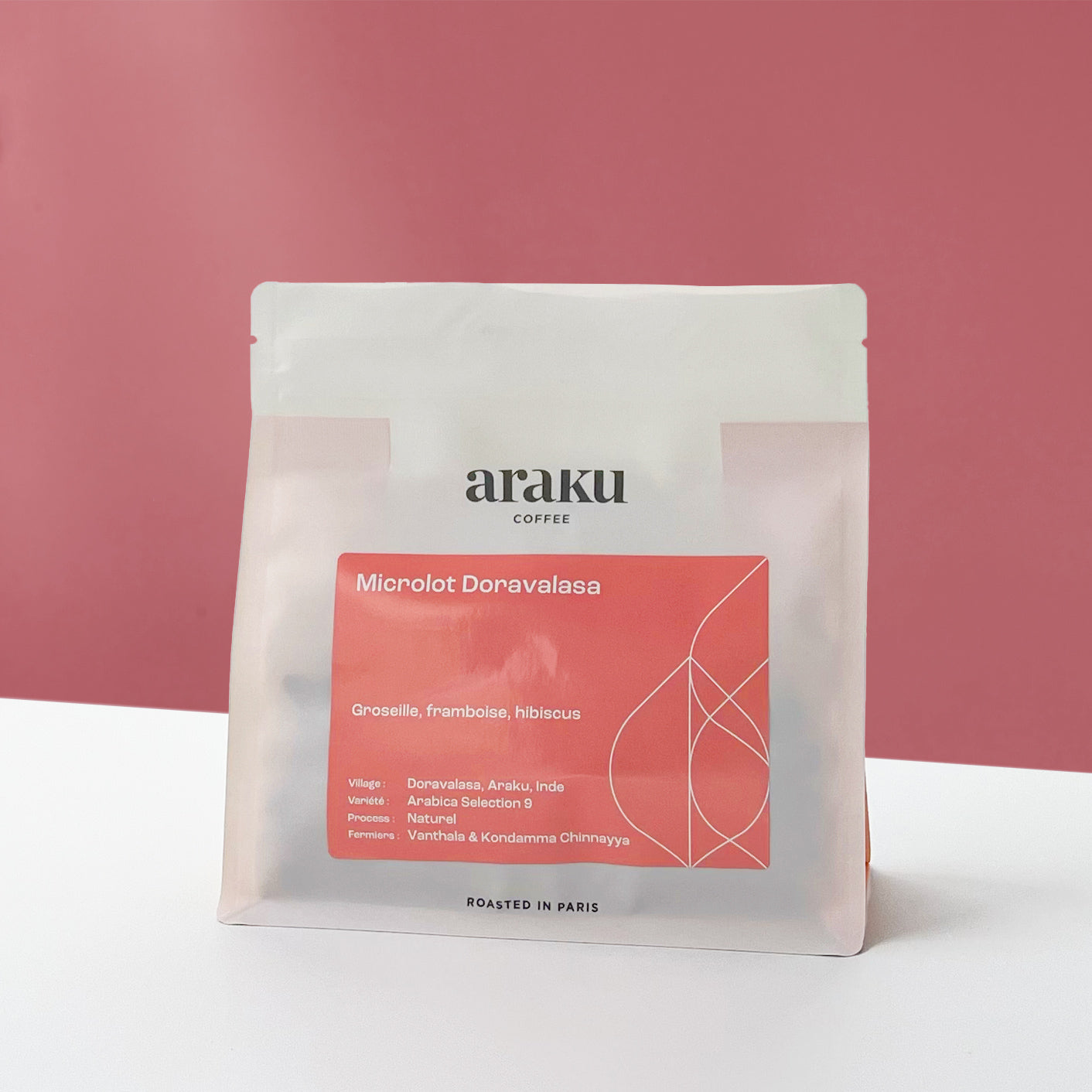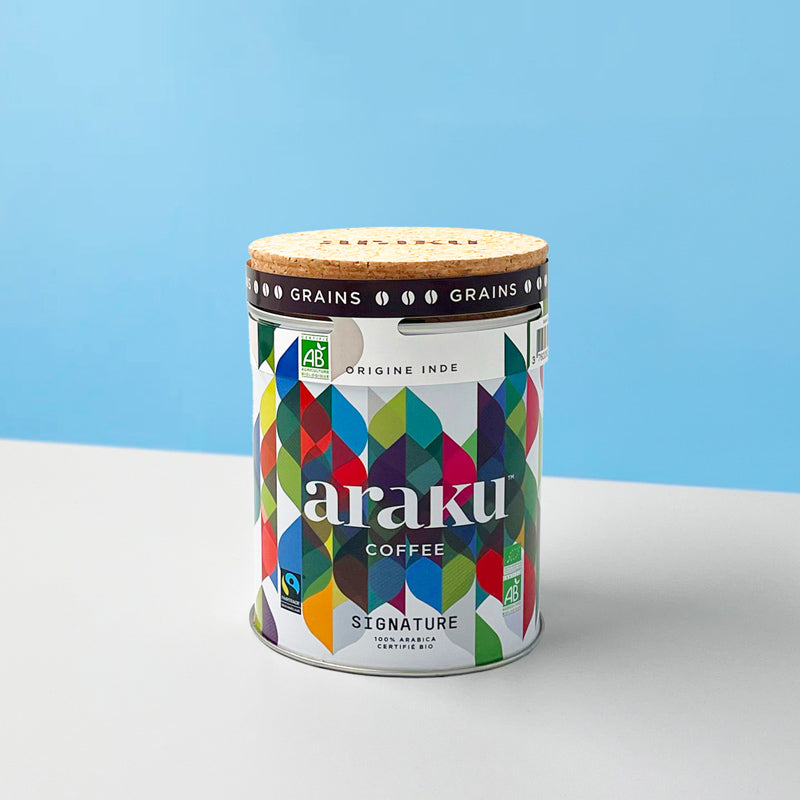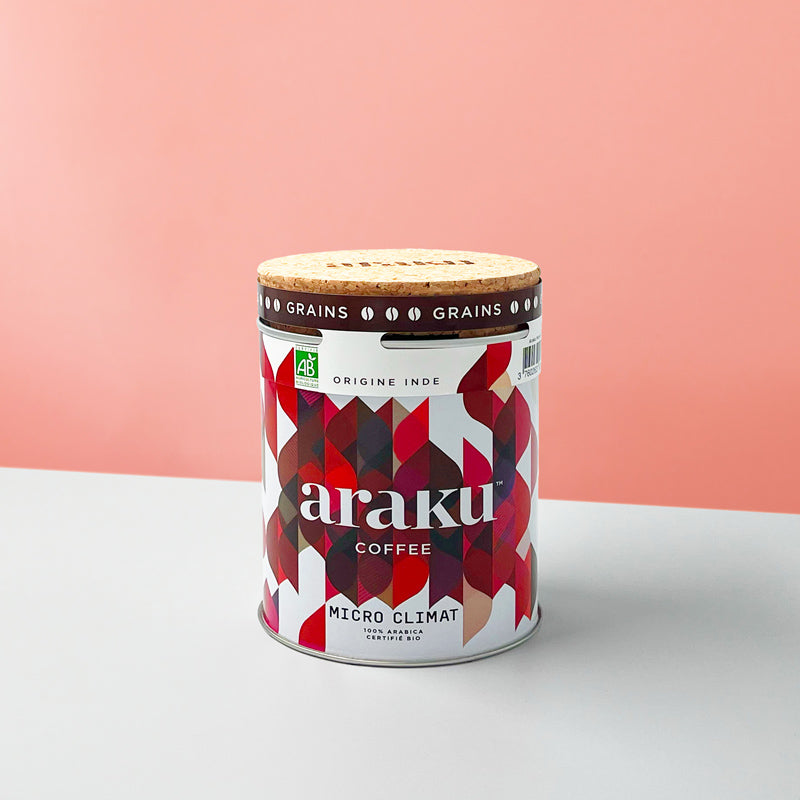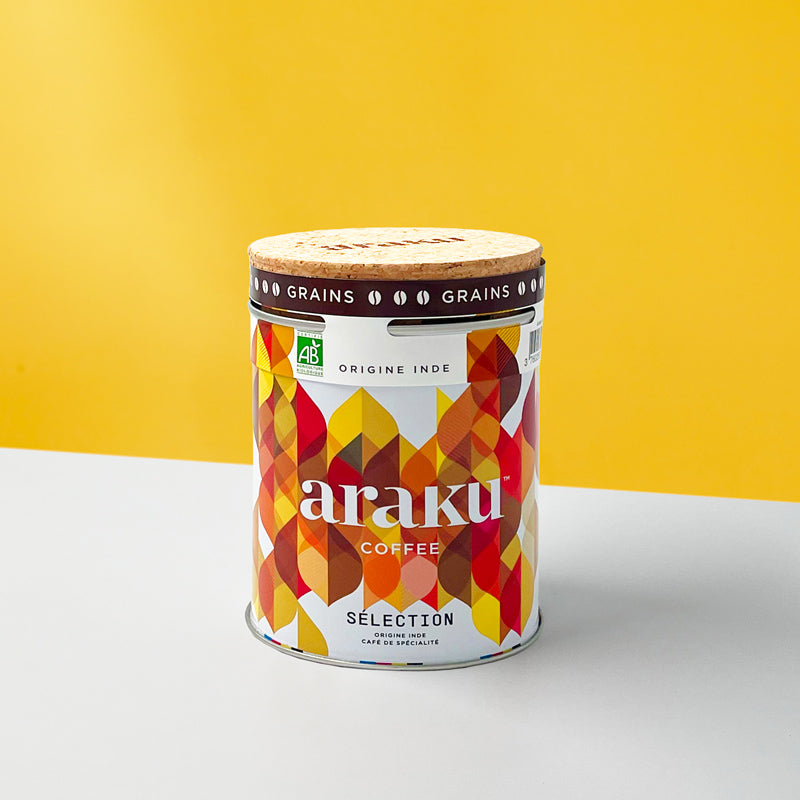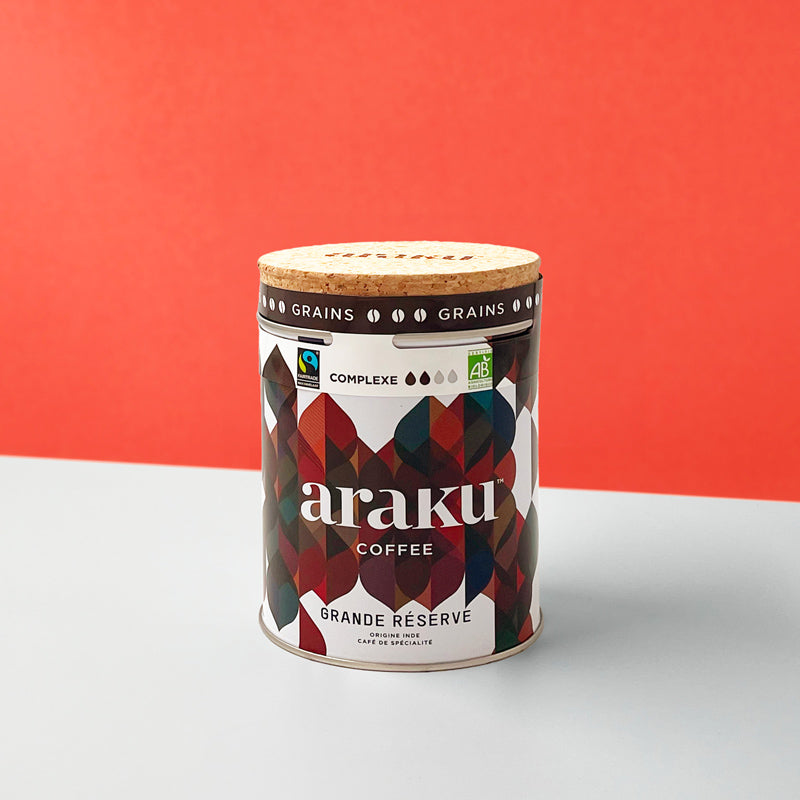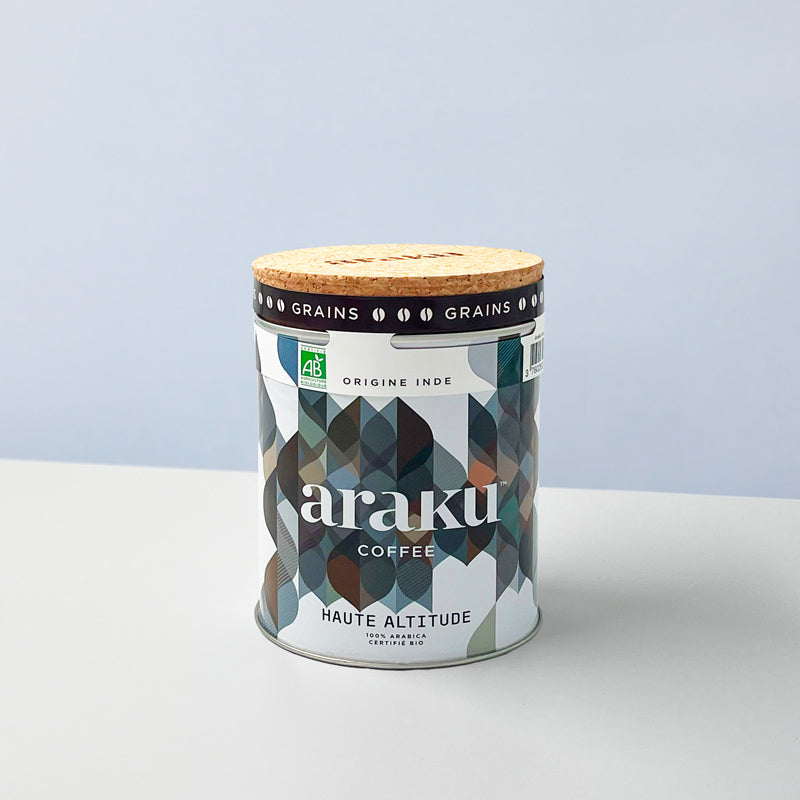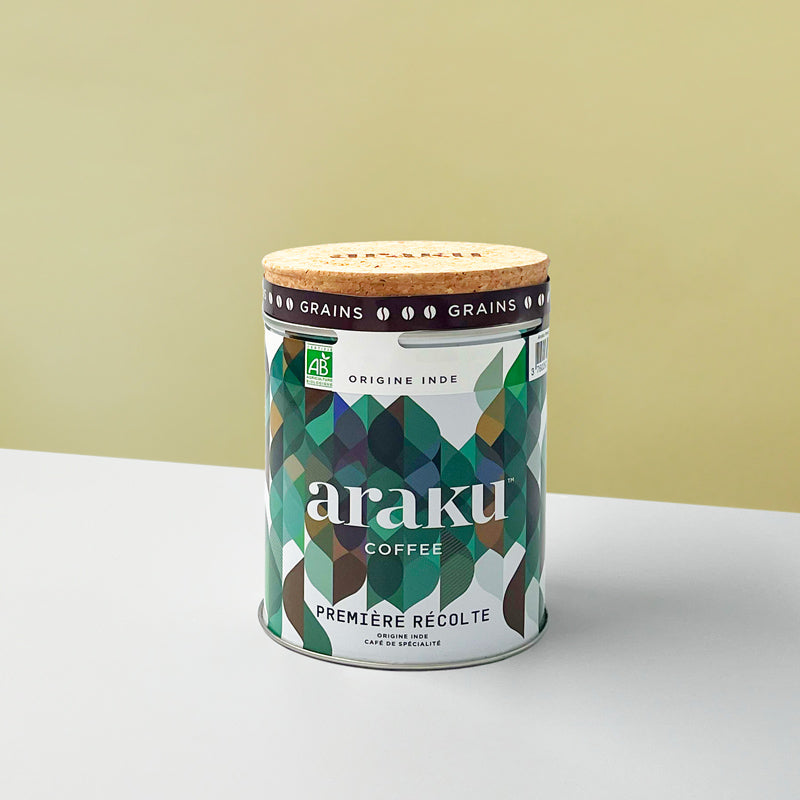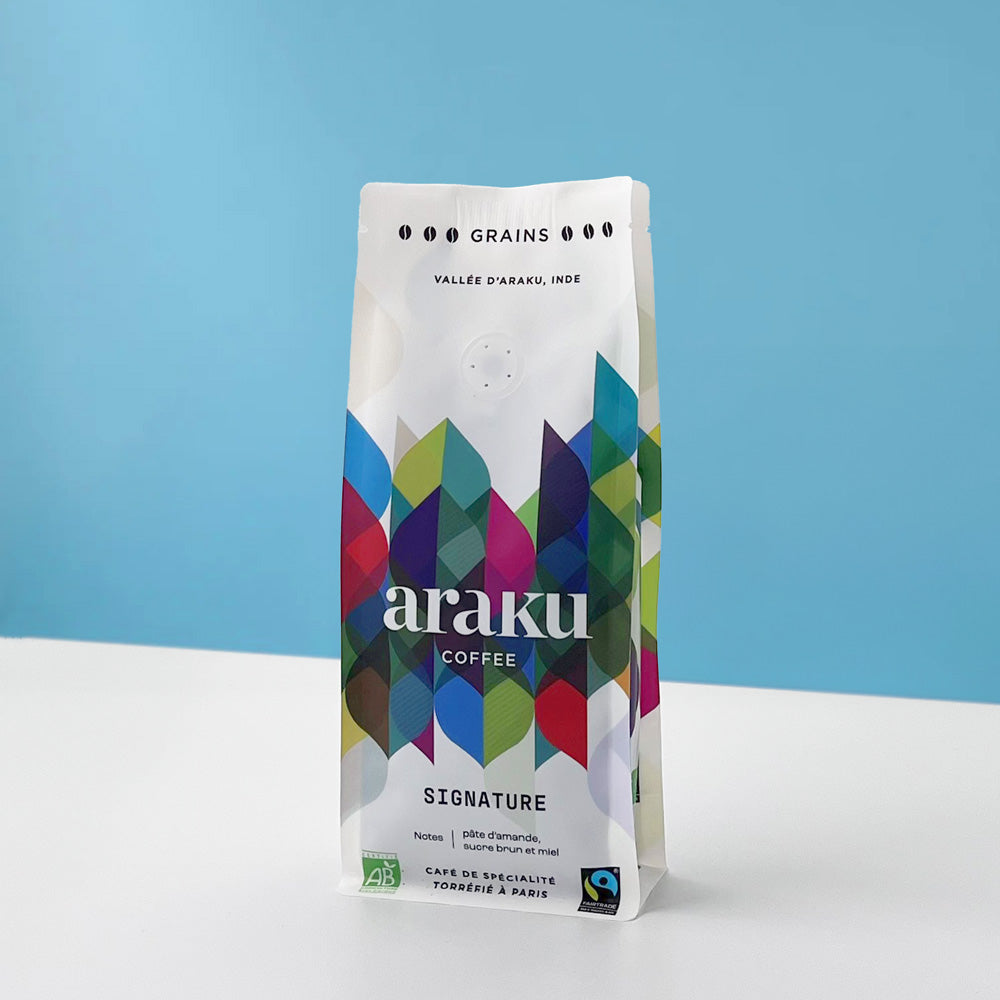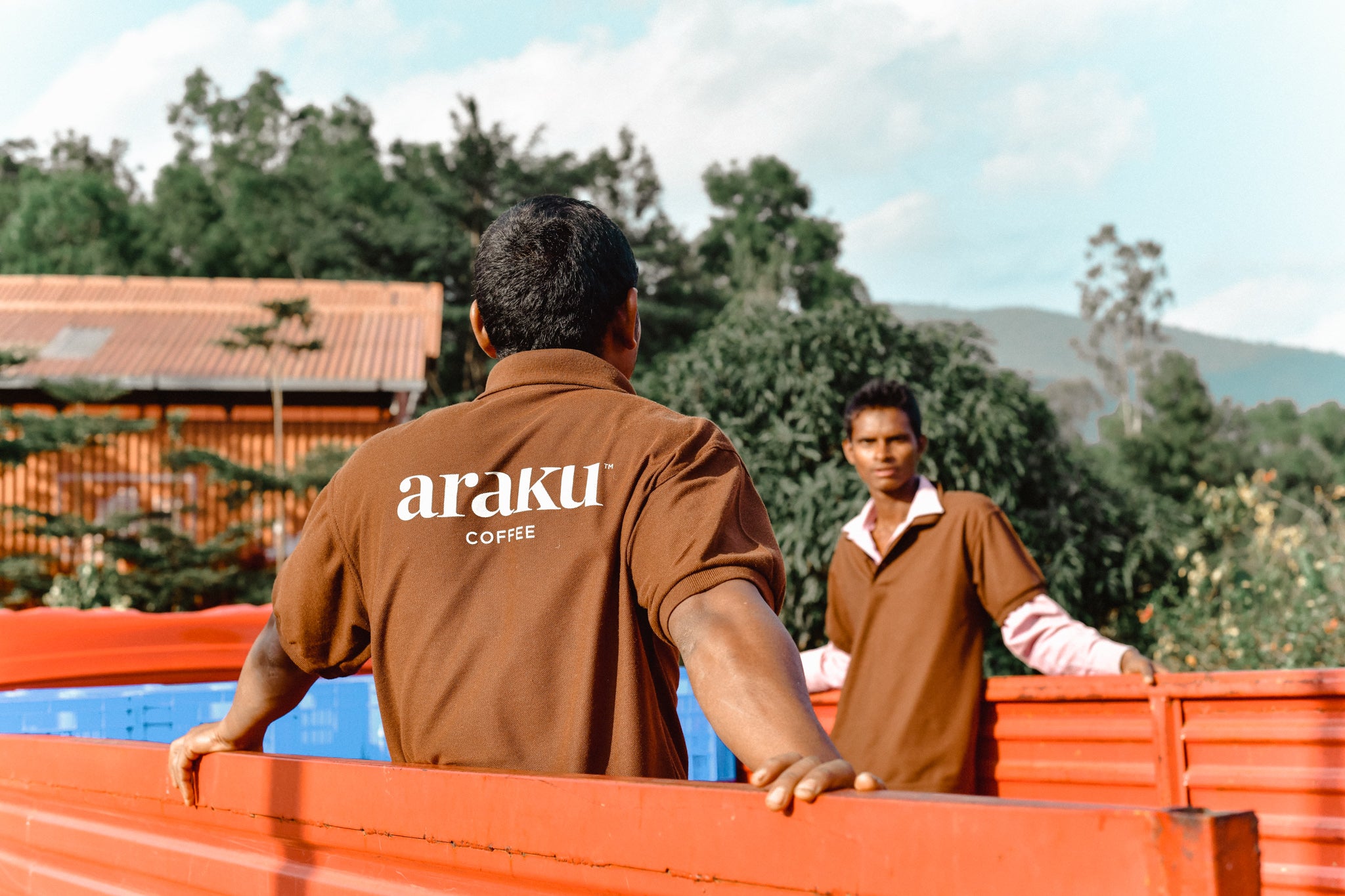What is specialty coffee?
Two types of coffee coexist. Convenience coffee and its brands owned by large agri-food groups are the most consumed in France; it represents almost 95% of the market. But the specialty coffee revolution, first driven by California, Australia and the Scandinavian countries, has continued to grow in France over the past ten years.
The philosophy of specialty coffee is simple: bring together players in the coffee sector around good social and environmental practices. Throughout the production chain, specialty coffee beans are treated with care: attention paid to the soil, to the varieties of coffee trees, cultivation ideally in agroforestry, manual harvesting, careful sorting to keep only the most beautiful cherries... Coffee growers therefore do not prioritize quantity but rather taste qualities at each stage of their production.
The final product is a better quality coffee, obtained without the defects of a large industrial installation and following fairer working conditions where agricultural know-how is valued.
Since the beginning of the 2000s, specialty coffee has clearly developed following the desire of a segment of the industry to promote coffee as an artisanal product. In the same way as a labeled wine, the consumer is invited to view coffee not as a commodity but as an exceptional product. Naturally, the costs of producing specialty coffee are greater due to the lower crop yields and more rigorous stages of its production.
A specialty coffee, monitored and rated
The quality of the bean , the way it is grown, the origin, the roasting conditions: with specialty coffee, we hide nothing from you. But to achieve exceptional product status, a specialty coffee must be inspected by the Specialty Coffee Association (SCA). Following precise criteria, the coffee is rated out of 100. Its smell, its aromas, its acidity, its aftertaste, its balance, its uniformity... Everything is scrutinized to qualify the quality of the final product. Only coffees obtaining a score above 80 can claim the title of specialty coffee.
At Araku, all our coffees range between 85 and 92. The SCA clearly positions us as a producer of exceptional coffee.

